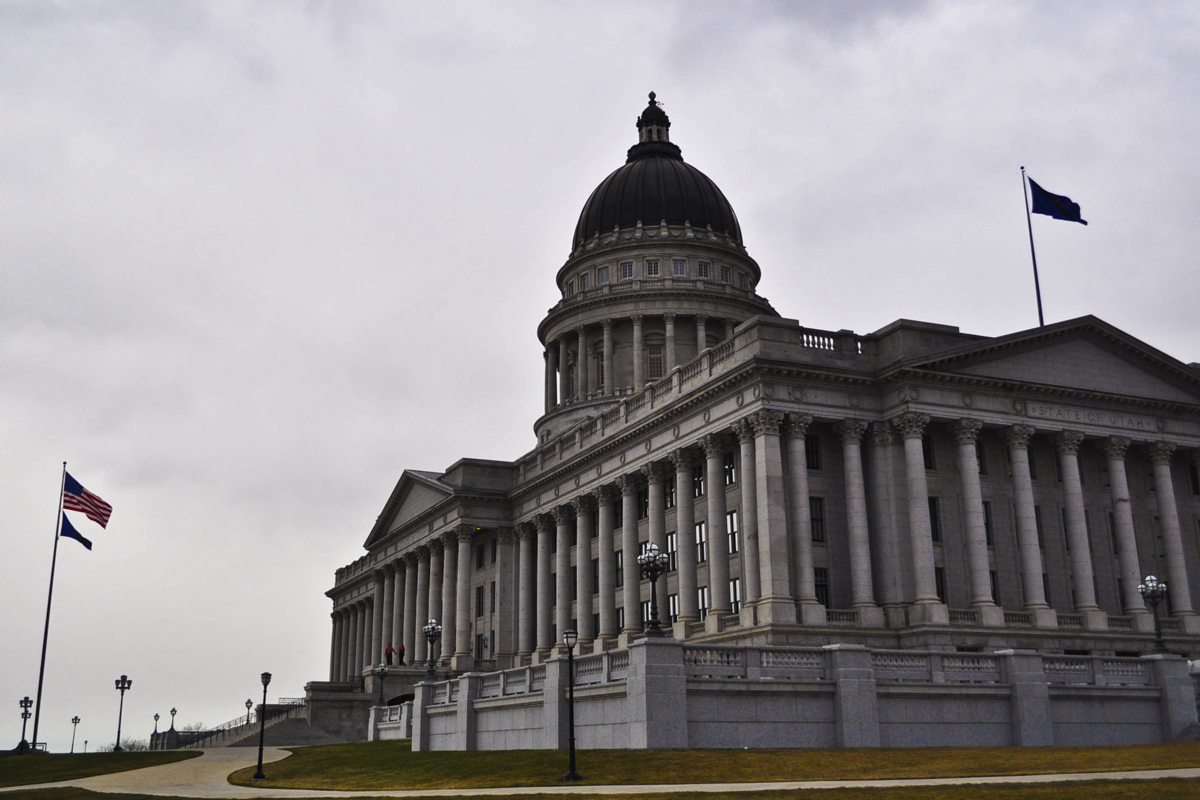Controversial bill repealed after public outcry
After weeks of national attention, statewide protests and intense public scrutiny, House Bill 477 was repealed March 21 ending its short-lived but notorious legislative lifespan. The now-repealed bill would have amended Utah’s Government Records Access Management Act (GRAMA) to restrict the public’s access to legislators’ communications exchanged via e-mail, chat, text message or video conference.
USU College Libertarians president Just Hinh who helped coordinate students’ efforts to repeal the bill, said the bill essentially changed legislators’ communications from being public unless proven private, to being private unless proven public.
“What I found most disturbing was that it shifted the burden of disclosure to the public. Before, it was the burden of the government to justify why public documents were to be kept secret. With HB 477, the burden would now be on the public to explain why it is in the public’s interest to disclose,” he said.
The bill also shifted the expense associated with sorting through e-mails and other digital messages from the legislative lawyers who are paid for with Utah tax dollars to the individuals or organizations who are requesting the records.
Members of the legislature who initially voted for HB 477 said they did so in order to protect their private communications and not to prohibit citizens from accessing their legislative business.
Logan representative Curt Webb, said one legislator received a request for all of his e-mails from February to November of last year, totaling 50,000 e-mails. Webb said the expense associated with sorting through the e-mails to determine which qualified as public and which qualified as private totaled $14,000, which was paid for using state tax dollars.
“Government that isn’t transparent isn’t good government,” Webb said, “But … you have to make a decision. Do those who are making the request need to pay the cost associated with retrieving them, or is that something that you want the public to pay?”
Webb was one of only three representatives who did not vote in favor of the repeal. He said his decision was based partly on principle.
“We knew when we passed the bill that the media would object to the bill. There was no question. We knew that the media would object,” he said. “How it got twisted into what people say it is – I just have to smile. That was not the intent. I was there. I listened. It was not the intent.”
While Webb and other legislators say they were not trying to block public access to the government’s actions, many spectators say the intent was not so innocent. Some legislators have said the bill was a mistake from the beginning.
Journalism Department Head Ted Pease said, “What it looked like is that they’re trying to keep secrets, and for anyone in a participatory democracy who’s an elected lawmaker to try to keep secrets from the people who elected them that is just wrong.”
He said he found it ironic that the Republican caucus met in a closed session to make their decision about the bill.
“I think that speaks volumes,” he said.
District 4 representative David Butterfield, whose district includes Logan, said on his website that he initially voted for the bill because he felt the law needs clarification about what is and what is not a government record.
Webb said after the media’s “firestorm” reaction to the bill, legislators were forced to decide if it was worth the effort to continue trying to push the bill, but that most were unwilling.
“The legislature simply does not have the resources to counteract that kind of an onslaught,” he said.
“As far as repeal goes,” he said, “I probably would have said I didn’t want to repeal it to begin with. I’d have said look, if you don’t like it, come back into it next session; we’ll sit down, we’ll go through it and see if we can work out some of the problems.”
Webb said he’d like for the working group to come up with something that everyone could agree to and that could be made into law to update the 1992 draft to match today’s communication technology.
USU Political science professor Daman Cann said, “While some changes may be reasonable, what was actually proposed and passed was problematic. Transparency is part of good governance, and being transparent requires the government to spend money to meet open records requests.”
He said he sees no need for text messages or other forms of written or typed communication to be made private because legislators can communicate privately in other ways, such as spoken conversation.
In the wake of HB 477’s passage, a Facebook page titled “Repeal Utah House Bill 477” attracted over 2,400 members, the Society of Professional Journalists granted Utah the Black Hole Award. The SPJ’s Freedom of Information Committee also projected dropping Utah’s transparency rating from 13th to 51st in the nation.
Webb said he would encourage anyone who has doubts about the legislature’s intentions to read the bill, and that anyone who still has concerns can call and speak to him personally.
– robmjepson@gmail.com

